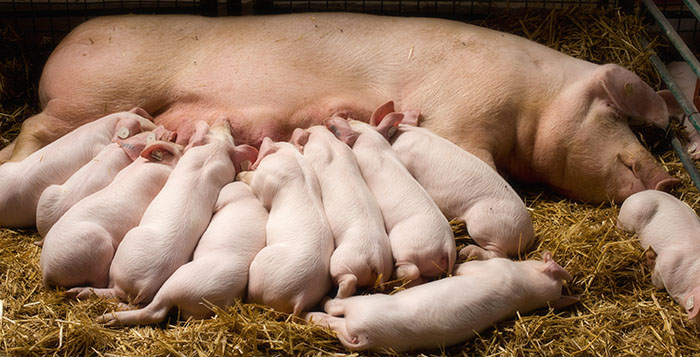New research from teams at the Universities of Bristol and Reading found that 28-day old piglets produce very different levels of immune cells, antibodies and other immune-associated molecules depending on their sex, contradicting previous evidence suggesting that the difference in immunity begins during puberty.
Dr Marie Lewis, principal investigator and lecturer in gut immunology and microbiology at the University of Reading, said: “Correct development of the immune system is essential in ensuring it responds appropriately to both harmful and harmless stimulation throughout life and this development, even during the first days of life, depends on your sex.”
The piglet study highlighted that probiotics and prebiotics work differently in girls and boys.
Dr Lewis said: “Piglets are valuable pre-clinical models for human infants, especially for nutritional studies, and we also show for the first time that probiotics and prebiotics can have different effects on the immune system in male compared to female piglets.
“For example, the prebiotic inulin significantly increases the number of cells responsible for controlling immune responses, the regulatory T-cells, in male guts but not in female guts.
“The consequence of this study is that we need to rethink how we design, and analyse the data from, nutritional trials in youngsters. Currently, studies looking at the effectiveness of dietary supplements on the immune system assume that the same thing happens in boys and girls. But we show this is not the case and that sex may be influencing data on the effectiveness of probiotics and prebiotics in infanthood.”
The paper found that probiotics and prebiotics work differently in male compared to female 28-day old piglets. The team noted that the effect of these nutritional interventions can be masked if males and females were looked at all together.
In a previous study in 2018, Dr Lewis found that how the immune system develops in the guts of pigs can be programmed very early on. The team found that piglets exposed to an extensive, outdoor farm during just the first day of life retained a regulatory immune environment in their guts even after 28 days of ‘urban living’.
This, Dr Lewis said, could be linked to the reduced incidences of allergy development which occurs in children raised on farms.




